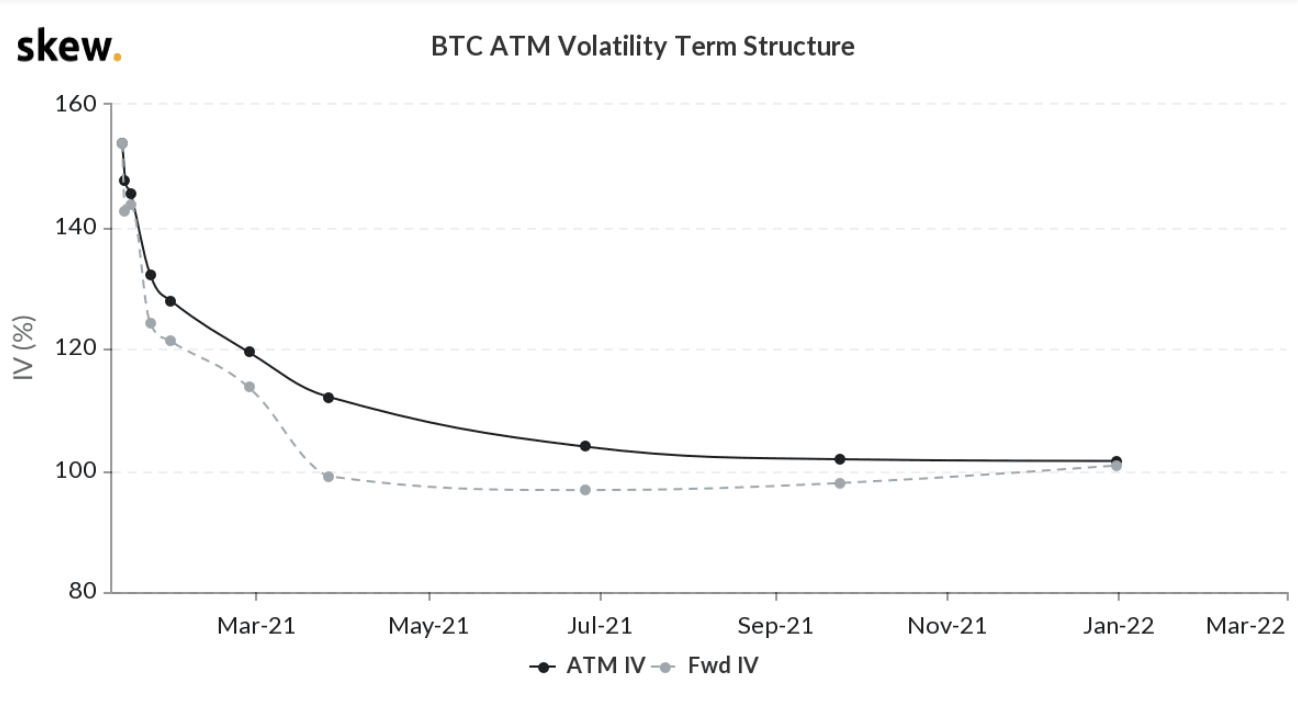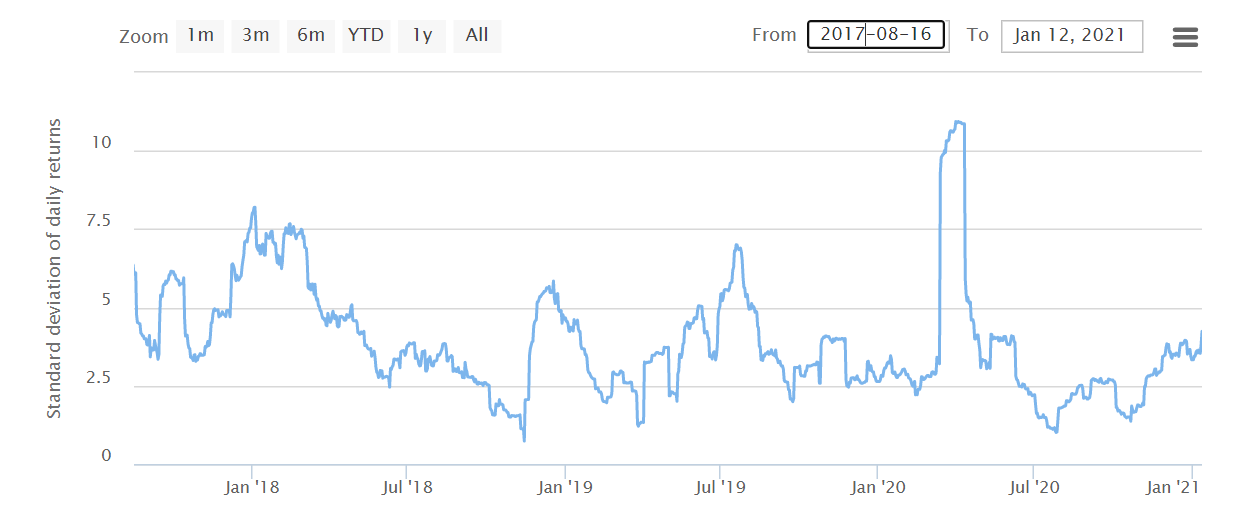Does Bitcoin’s volatility count for much during a bull rally?

2020 will be remembered for a host of reasons, with Bitcoin volatility being one of them. After scaling up to its all-time high index during the March 2020 collapse, BTC volatility remained under nominal levels for the rest of the year. On average, Bitcoin’s volatility was lower than the S&P 500 and even Tesla, in 2020.
Bitcoin’s calm Volatility Index was disrupted following the cryptocurrency’s latest price action, however, with Skew pointing to a series of changes in the short-term.
Bitcoin volatility arises after 20% swing trade
As illustrated by the attached chart, BTC Options’ term structure is most inverted after Bitcoin drops, with its At-the-money volatility positioned at a higher percentage than the Forward IV. One major reason for the volatility spike could be the massive liquidation spike of over $1 billion BTC Futuresm but right now, it is more important to focus on the impact of volatility during a bull run.
When the short-term Implied Volatility was observed, it was found to be at its highest levels since May 2020 and at the time of writing, it was moving at a daily rate of 10%. However, on the same hand, Bitcoin’s 25d Skew continued to remain on longer-dated maturity, highlighting the low distortion of price over the long-term.
BTC Volatility Index should not be ignored
Volatility might be rising for Bitcoin again due to the fact that the crypto-asset is again mediating in an unknown trading range after a long time. The last spikes in VIX were observed back in January 2018, June 2019, and following the massive outlay in March 2020.
On the contrary, the rest of 2020 may have registered a diluted VIX due to its price range being historically evident. After Bitcoin crossed $16,000 in Q4 2020, the shift started to take place and since the 2nd week of November, VIX has been on the rise.
The main inference that can be drawn from the above is the impact of Bitcoin’s volatility during major bullish rallies. While over time, the volatility might be turning more stable, over the short-term, it continues to play a vital role in dictating price movements.









